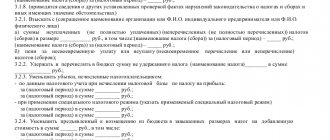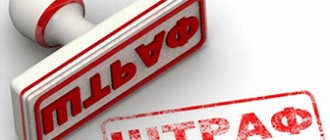From November 25, 2021, new application forms will be used for registering legal entities and individual entrepreneurs to make changes to company data. Oddly enough, the changes affect everyone, including business owners, because even more information will appear in the public domain.
Updating document forms is associated with a large number of accumulated changes in legislation.
For example, some legal innovations of the Civil Code of the Russian Federation from 2014 have only now found their implementation. taxCoach experts noted key changes in registration forms, primarily related to the ownership and management of organizations.
Information about the corporate agreement
Let us recall that company participants can enter into a corporate agreement among themselves, and sometimes with third parties, under the terms of which they can agree to vote in a certain way at general meetings, alienate shares and shares at a predetermined price or upon the occurrence of certain events, etc.
Now information about the existence of such an agreement must be reflected in the Unified State Register of Legal Entities:
- If it limits the rights of participants to alienate shares (shares). Publication of information about a corporate agreement reduces the risks of selling shares to third parties in violation of its terms.
- Or it secures the rights of participants disproportionate to the size of their shares (indicating the number of votes attributable to the share of an LLC participant disproportionate to the size of this share). The contents of the corporate agreement are not required to be disclosed.
Verification “outside the scope of verification” - what does it mean?
Article 93.1 of the Tax Code sets out the rules for requesting documents from counterparties of the audited company.
Thus, paragraph 1 of this article allows tax authorities, during an audit, to demand from a partner of a controlled company information regarding its activities. This type of check is also called a “counter” check. Tax inspectors may require any documents regarding a specific transaction from any person who has such information, even outside the framework of a tax audit. Including those that relate to one or another employee of this company or individual entrepreneur (for example, papers with his signature).
Tax authorities have the right to request information about the parties to this transaction, its subject and the conditions of the transaction.
Read in the berator “Practical Encyclopedia of an Accountant”
What is a “counter” check
Now reorganizations can really be anything
Since 2014, legislation has allowed companies to combine several forms of reorganization within one reorganization procedure: spin-off with simultaneous merger, etc. However, the old registration forms in practice significantly limited this freedom, since there was nowhere to put a tick if, for example, the LLC decided to merge with another company and simultaneously spin off a new one. Now this opportunity is provided in full. It is enough to check the box 6 “Simultaneous combination of various forms of reorganizations.”
During a desk audit, the Federal Tax Service does not have the right to require additional documents.
I hasten to share good news with business. In arbitration practice, an excellent judicial precedent has appeared (see case No. A36-2872/2020), which actually proved that tax authorities, during desk audits, do not have the right to demand that taxpayers provide documents that they are very fond of requesting in huge quantities.
During camera inspections, the inspectorate has the right to demand from the taxpayer only an explanation or corrections to the declaration being audited (see paragraph 3 of Article 88 of the Tax Code of the Russian Federation). From now on, the court has proven that the inspectorate has no right to demand anything other than this in camera rooms. And taxpayers, in turn, providing explanations in response to such requirements of the Federal Tax Service, have the right, but not the obligation, to provide the Federal Tax Service with any additional documents.
I'll describe the situation.
The company submitted an income tax return to the tax authority. As part of the desk audit, the Federal Tax Service Inspectorate sent a request for clarification, in which it indicated that a discrepancy had been established between the amount of income from sales and non-operating income with the Company's revenue reflected in its VAT return.
Further, the requirement stated that in accordance with Articles 31, 88, 93 of the Tax Code of the Russian Federation, the Company must submit a huge number of documents to the inspectorate. That is, in a simple way, the inspection actually turns an ordinary desk check into an on-site documentary check, since the differences between these checks are thus erased. In both cases, the taxpayer requests absolutely all documents.
But in this case one more important detail attracts attention. Here we are talking not only about the requirement of the inspection within the cameral to provide documents to it, which, in general, has already become a common occurrence.
Of particular interest is the fact that the reason (reason) for this requirement on the part of the inspectorate was pure nonsense - a discrepancy found between VAT and income tax returns . Although it is obvious to any accountant that comparing these declarations with each other is as pointless as comparing, for example, a bear with a moose, citing the fact that they both live in the forest. Those. in fact, there is simply no reason (reason) for formalizing this requirement.
Of course, it is at least strange to read such requests from the inspectorate, but this issue is apparently a “dark forest” for the tax inspector who issued this requirement. And it is from this “dark forest” that such delusional demands grow.
The company did not copy and send this huge amount of documents to the Federal Tax Service Inspectorate, but in response provided the Federal Tax Service Inspectorate with its explanation, in which it conducted an “education program” for the inspectors, pointing out that the inspectorate compares completely disparate amounts that do not depend on each other in any way. The differences between the indicators of tax returns for VAT and income tax are objective and cannot in any way be classified as errors, contradictions and inconsistencies.
In addition, the Company, with reference to the provisions of paragraph 4 of Article 88 of the Tax Code of the Russian Federation, indicated that the provision of documents in response to a request issued as part of a desk audit is its right, not an obligation. It also explained that, according to the provisions of paragraph 3 of the same article, the Federal Tax Service, as part of a desk audit, has the right to request from the taxpayer only the necessary explanations or amendments to the tax return. But the Tax Code does not give tax authorities the right to demand the provision of documents as part of a desk audit.
It would seem that the incident is over. Well, it happens that the tax inspector made a mistake, but the taxpayer wrote everything in detail to him in his response to the demand. But it was not there.
The inspector perceived such explanations from the Company as insolence. And in response, they drew up an Act on the Company committing a tax offense, provided for in paragraph 1 of Article 126 of the Tax Code of the Russian Federation - they say, the Company did not submit documents at the request of the Federal Tax Service.
Please note that not a word is said in the audit report about the absurdity of the very motive (reason, reason) for requesting this huge number of documents from the taxpayer. The entire emphasis was shifted to the fact that the Company still had to submit all the requested documents to the Federal Tax Service.
Express seminars from “What to do Consult”, which our website is now full of, helped us write this article. Their topics and number (more than 100!) completely cover all the interests of an accountant, director or individual entrepreneur. You can view the seminars by subscribing to Clerk Premium. It's currently 50% off.
For just a few more days we are giving you six months of access to our subscription for free. In addition to 107 recordings of express seminars, you will have access to 15 online courses for free (some provide a Russian IPB certificate ) and several tools for accountants. Leave your contacts below , the manager will contact you to provide access:
From the analysis of this situation, an unambiguous conclusion follows: for the inspection, the reason (reason) for requesting documents does not play any role. Any nonsense is suitable as a pretext, since in this way the inspectorate wants to receive from the taxpayer all his documents for verification, without announcing a documentary verification.
Agree, with this formulation of the question there is no connection between cause and effect, since in essence there is no reason for requesting documents at all. But nevertheless, the request for documents in itself, even without a reason, must be fulfilled. This is what the tax inspector thinks.
The Society naturally submitted objections to this Act, in which it once again described its position on this issue. It would seem that now the head of the Federal Tax Service will consider this situation and resolve the conflict.
But the Federal Tax Service Inspectorate, signed by the deputy head of the inspectorate, made a decision to bring the Company to tax liability in the form of a fine for failure to provide the documents required by the requirement. And again, note that the decision of the Federal Tax Service Inspectorate does not say a word about the absurdity of the very motive for requesting documents from the taxpayer.
As a result, the Company filed a lawsuit to declare the decision of the Federal Tax Service invalid, contrary to the current tax legislation and violating the legal rights of the taxpayer. And the arbitration court, fortunately for all of us, dealt with this situation in detail, and satisfied this claim in full.
And now about the most important thing. In this situation, it is very important to understand, evaluate and enjoy how the respected court justified the satisfaction of this claim by the Company.
The court indicated that paragraphs. 10, 11, paragraph 1, Article 21 of the Tax Code of the Russian Federation, it is provided that taxpayers have the right to: demand that officials of tax authorities comply with the legislation on taxes and fees when they carry out actions in relation to taxpayers and not comply with unlawful demands of tax authorities that do not comply with the Tax Code.
The right of the tax authority to request documents (information, explanations, etc.) from the taxpayer, to which the taxpayer’s obligation to perform the appropriate actions and provide documents (information, explanations, etc.) corresponds, can only be exercised strictly on the grounds in in the manner and within the limits provided for by the legislation of the Russian Federation.
Paragraph 1 of Article 93 of the Tax Code of the Russian Federation provides that the tax authority has the right to request from the person being inspected the documents necessary for the inspection. The inspected person’s refusal to submit the documents requested during a tax audit or failure to submit them within the established time limits is recognized as a tax offense and entails liability under Article 126 of the Tax Code of the Russian Federation (see clause 4 of Article 93 of the Tax Code of the Russian Federation).
By virtue of clause 1 of Article 126 of the Tax Code of the Russian Federation, failure by a taxpayer to submit documents and (or) other information provided for by this Code to the tax authorities within the prescribed period entails a fine of 200 rubles for each document not submitted.
However, from the systematic interpretation of Articles 93 and 126 of the Tax Code of the Russian Federation, it follows that when holding a taxpayer liable under clause 1 of Article 126 of the Tax Code of the Russian Federation for failure to provide documents and (or) other information, the tax authority is obliged to prove the existence of the taxpayer’s obligation to provide relevant documents and information .
But from paragraph 1, paragraph 3, Article 88 of the Tax Code of the Russian Federation, it follows that if, during a desk tax audit, the tax authority reveals errors and (or) contradictions ... then the tax authority has the right to require the taxpayer: 1) to provide explanations or 2) to make appropriate corrections in your declaration within the prescribed period. And the tax authority, when conducting a desk audit, does not have the right to require the taxpayer to provide documents.
And from the provisions of paragraph 4 of Article 88 of the Tax Code of the Russian Federation, it follows that a taxpayer who submits to the tax authority explanations regarding errors and contradictions identified by the tax authority, that is, fulfills his obligation corresponding to the right of the tax authority enshrined in paragraph 1 of paragraph 3 of Art. 88 of the Tax Code of the Russian Federation, to request only explanations, has the right, at its own discretion, to additionally submit to the tax authority extracts from tax and (or) accounting registers and (or) other documents confirming the accuracy of the data entered in the tax return (calculation).
Thus, neither paragraph 1, paragraph 3, nor paragraph 4 of Article 88 of the Tax Code of the Russian Federation provide for the taxpayer’s obligation to provide the tax authority with any specific documents when conducting a desk audit of a tax return .
At the same time, the court emphasized that in response to the demand, the Company fulfilled its obligation provided for in paragraph 1, paragraph 3, article 88 of the Tax Code of the Russian Federation, and provided the tax authority with its explanation, in which it detailed its arguments regarding the reasons for the discrepancy between the tax return data. on profit and VAT return data. At the same time, the Company did not consider it necessary to exercise its right, enshrined in clause 4 of Article 88 of the Tax Code of the Russian Federation, to submit, in addition to its explanation, extracts from tax and (or) accounting registers or other documents.
By virtue of clause 7 of Article 88 of the Tax Code of the Russian Federation, when conducting a desk tax audit, the tax authority does not have the right to request additional information and documents from the taxpayer, unless otherwise provided by this article or if the submission of such documents along with the tax return (calculation) is not provided for by this Code. In accordance with clause 5 of Article 88 of the Tax Code of the Russian Federation, the person conducting a desk tax audit is obliged to consider the explanations and documents submitted by the taxpayer.
If, after considering the explanations and documents submitted by the taxpayer, or in the absence of explanations from the taxpayer, the tax authority establishes the fact of a tax offense or other violation of the legislation on taxes and fees, tax authority officials are required to draw up an inspection report in the manner prescribed by Article 100 of the Tax Code of the Russian Federation.
Consequently, the tax authority has the right to establish the fact of a tax offense in relation to the data reflected in the tax return submitted for a desk audit, regardless of the taxpayer’s fulfillment of his obligation to provide explanations and regardless of the taxpayer’s exercise of his right to provide documents for his explanations.
And now a very important ending to this topic. Thus, the court confirmed that the tax authorities, when conducting desk tax audits, do not have legal grounds for demanding any documents from taxpayers. Accordingly, any taxpayer does not have the obligation to provide such documents to the tax authority as part of a desk tax audit.
I urge all taxpayers to realize this and take it as a basis. As part of desk audits, you have the right to provide the tax authority with additional documents, but are not obligated to do so. Use your rights only when you need them.
Nikolay Nekrasov, manager of BENC LLC
Model charter? Please!
LLC participants are finally given the actual opportunity to use the standard charter. If they decide that the LLC will operate under a model charter, this must be reflected in the entity registration statement.
Despite the legislative possibility of conducting activities according to one of the 36 standard charters developed by the Ministry of Justice of the Russian Federation, in the application forms valid until November 25, there were no fields for notifications about the choice of a standard charter by participants. And although we are quite critical of the use of template constituent documents, this gap has been eliminated in the new registration forms.
For changes only in the charter or only in the register, one form is now provided
If earlier, in order to simultaneously make changes to the charter and register a change of director, it was necessary to submit Form 13001 “On Amendments to the Charter” and separately Form 14001 “On Amendments to the Unified State Register of Legal Entities”, now everything will be limited to the use of one universal form 13014 “Application for state registration of changes made to the constituent document of a legal entity, and (or) on changes to information about a legal entity contained in the Unified State Register of Legal Entities.” Convenience and savings are obvious.
There will be an investment partnership!
One of the significant advantages of owning a company through the use of an Investment Partnership agreement is the legislative ability to ensure covert ownership of such a company. Since only the Authorized Managing Partner (“the person” of the partnership) is listed as its participant in the Unified State Register of Legal Entities. The remaining comrades are not visible as members of the company. However, in order to ensure their legal rights, the register will now reflect information about the agreement itself, of which they are hidden participants.
Not all information from the Unified State Register of Legal Entities is public
Also, new forms give companies the opportunity to limit access to information about themselves in the Unified State Register of Legal Entities by submitting an application to the tax authority. This right is granted, for example, to companies located in the territory of the Republic of Crimea or the city of Sevastopol. In particular, in relation to such organizations, information about the founders (participants) may not be provided; about the manager (TIN, full name); on the scope of rights of participants established by the corporate agreement; about companies being in the process of reorganization.
Restricted information will be provided only to government agencies and local governments. To restrict access to information in the Unified State Register of Legal Entities, participants must submit a corresponding application, but the registration forms valid before November 25 did not have the corresponding fields. Similar to the situation with the standard charter, this gap is eliminated in the new forms.
As we see, more and more changes are being made in terms of ensuring transparency of the organization’s ownership structure and its management system, which significantly increases the importance of these issues in a multi-subject business structure.
How are documents requested?
The Federal Tax Service Inspectorate sends an order to request documents to the inspectorate at the place of registration of the taxpayer, from whom the necessary documents must be requested.
The order indicates during which event the need to submit documents arose, and when requesting information regarding a specific transaction, information allowing the identification of this transaction is also indicated.
It should be clear from the requirement what kind of transaction is meant. The counterparty with whom the transaction is being verified must be specified.
Within five days from the date of receipt of the order, your Federal Tax Service will send a request for the submission of documents. Attached to it is a copy of the initial order to request documents (Article 93.1 of the Tax Code of the Russian Federation).
The requested documents (information) must be submitted to the tax authority within ten working days from the date of receipt of the request. If you cannot submit the required papers within the specified time frame, ask for more time. The law allows tax authorities to extend the deadline. Clause 5 of Article 93.1 of the Tax Code allows, if there are objective reasons, to petition the inspectorate to extend the deadline for submitting the requested documents.
The tax authorities need to respond in any case, even if the demand is unlawful.
To minimize, and possibly completely protect yourself from receiving these requirements, the Federal Tax Service on its website recommends:
- refuse relationships with “dubious” counterparties;
- carry out regular reconciliation with counterparties and, before submitting a tax return, make sure that all invoice details are reflected correctly.








